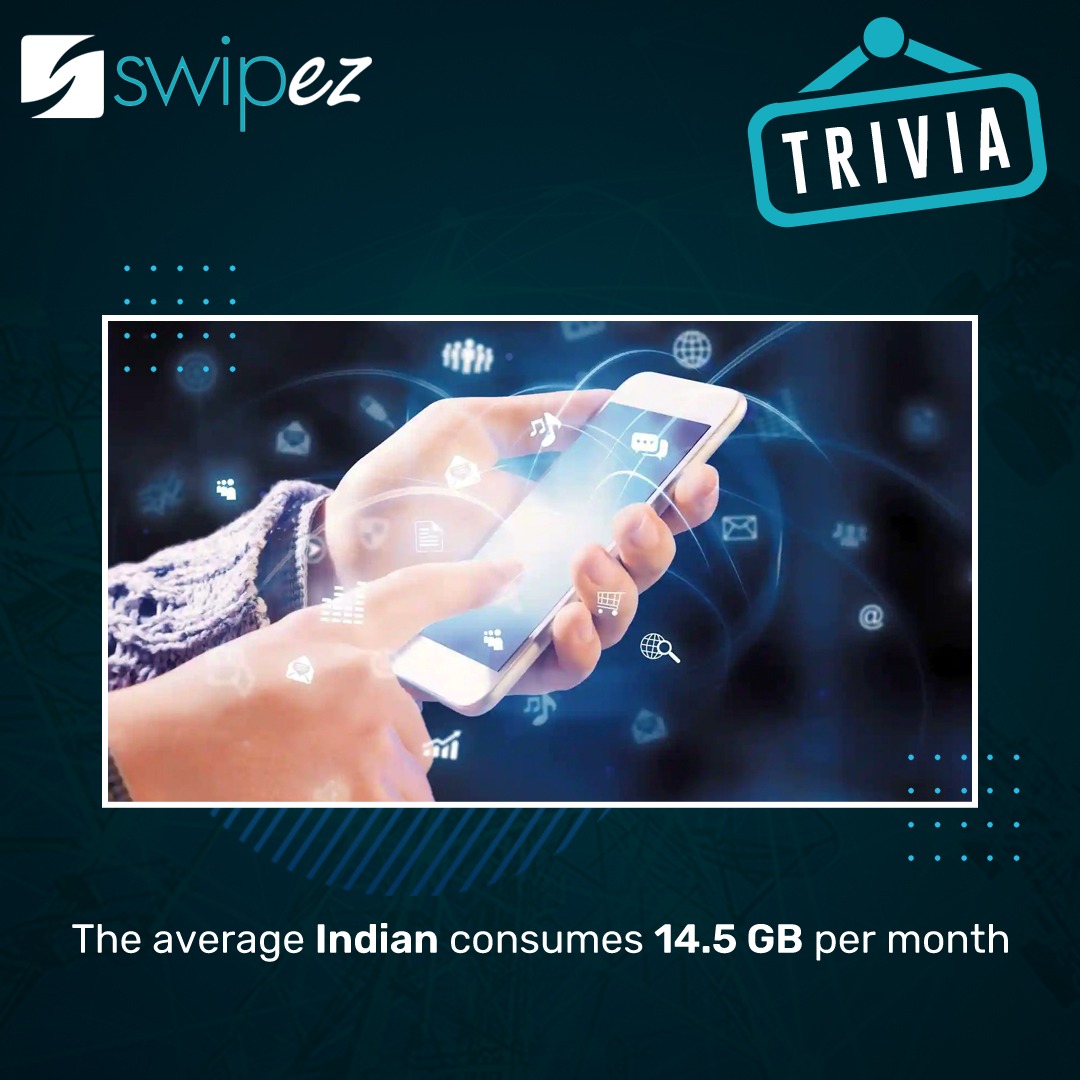How to start an ISP business in India

Information might be the highest currency one can have. But, when it comes to sharing information, and technology, however, the biggest obstacle is money.
The most significant barrier to launching an ISP in India is the significant amount of upfront capital necessary for licensing, equipment, and infrastructure. Bandwidth on the Internet, equipment cooling, and power sources are all resources that must be appropriately planned for and implemented to ensure that it is sustainable in the long run.
Starting an Internet Service Provider (ISP) business, though not an easy task, isn’t impossible if well-planned and with the necessary resources. And, the biggest resource at your disposal are the friendships and working relationships you have established over the years. This is as true for someone with a background in telecommunications as it is for someone who is a novice in the industry.
Here’s everything you need to know.
Table of Contents
- How to get an ISP business started?
- What should I research before starting an ISP business in India?
- How to get DoT Approval for an ISP business?
- How to build the infrastructure that supports success for an ISP business?
- How to market & advertise an ISP business in India?
- How to organize sales and support for ISP businesses?
- What ISP businesses need in a billing software?
How to get an ISP business started?
The only difference between a mob and a trained army is organization.
- Calvin Coolidge
The first question that needs to be answered is whether you want to become an internet operator or an internet service provider?
An ISP provides the connection to operators that are then subsequently distributed to the end customers.
Your answer to the aforementioned question will significantly influence both a) how much initial capital you will need to get started, and b) how you are going to organize your business. Because if you want to become an ISP, you need partners. However, if you want to be an operator, what you need is manpower. It’s a narrow distinction but a deep one, well definitely deep enough for your pockets. If you want to be an operator, the initial capital you’ll need is ₹1.5- 2 Lakhs (cautious estimate). If you want to become an ISP, the capital required would be markedly higher.
If you are an operator, you can start with a small society of let’s say 100 customers, for which you’ll need 3-4 employees, taking into consideration the different facets of operations like connection setup, fiber maintenance, customer support, etc. On the other hand, if you are an ISP with a conservative number of 1000 connections, you need 10-12 people to err on the side of caution.
If you have a background in telecommunications or have worked in the industry with a wide range of vendors previously, an ISP business would be a safe bet to make. If, however, you are a relative novice, wise counsel would be that you start as an operator and scale as you grow. Make sure your business is organized and your networks are established before taking the leap into starting an ISP business.
What should I research before starting an ISP business in India?
- The laws and regulations that govern the licensing and accreditation of ISPs. The time and labor you invest in researching the nooks and crannies will ensure that all ‘t’s are crossed and ‘i’s are dotted. It is an indispensable part of establishing an ISP. Even if you are an operator under an accredited ISP, the finer points of regulation are well-worth knowing as you move towards scaling your business.
- You also need to research the different hardware and software vendors in your purview. This is due diligence that though an investment of time and effort will ensure that you not only save money and time in the long run. But, also enter into a partnership with vendors that are sustainable to your growth. Consistency and reliability are major factors when assessing the different vendors. Not just, in terms of their efficiency, but also in their after-sales support.
A trick of the trade most ISPs swear by is running recon on a) their competitor’s reputation with the customers, b) which one of your competitors employs the fewest number of support staff. It is as good a litmus test as any to gauge both hardware and software vendors that offer the best in end-to-end support and reliable efficiency.
- Research your audience. Are you starting off in a smaller city or a metro? Are starting with one apartment complex or a small society? How is that relevant, you ask?! Well, for starters, it directly impacts how much fiber cable & hardware you are going to need. How many people you need to employ to get started. How you are going to price the different packages under your internet services.
If you are starting with one apartment complex, whether it is a small city or a metro, you need not invest heavily in hardware or manpower. The cost of connections, from an ISP’s perspective, is lower in metro cities than in smaller cities of the nation. Simply by the virtue of the amount of fiber cable, technical man-hours, and equipment required to set up a connection. But, here’s the catch, sales and profit margins for ISPs in smaller cities is higher, because there is less competition.

Studies conducted on internet users/subscribers across the nation reports that on average an Indian consumes close to 14.5GB / month. And, this is a number that is only going to keep towards an upward trajectory. For an ISP in a small city, that is an unprecedented and untapped reservoir of potential sales.
How to get DoT Approval for an ISP business?
To operate a broadband business in India, one of the crucial steps is to obtain an ISP (Internet Service Provider) license. Any MSO can apply for a UL (Unified Licensing) System ISP License. The Department of Transportation (DoT) issues UL licenses, which are valid for 20 years.
Even if you are an operator, i.e., you are the intermediary between ISPs and the end customers, a license though isn’t strictly speaking a necessity, is highly advised. Operators can function under the purview of the ISP’s license which would make them the ISP’s franchise for all intents and purposes.
The geographical area covered by ISP will determine the license that he/she needs to apply for. The services offered by the license must be determined and falls under three different categories:
- ISP in Category A: Serves the entire nation.
- ISP Category B: Covers one of India's 20 major states.
- ISP Category C: Covers a single secondary switching region, such as a small town, PO jurisdiction, colony, or district.
Category C license would cost you ₹ 10-12 K. ₹ 10,000 for a deposit and ₹ 2000 are incidental charges. An amount that could be well-covered by your cautious estimate of ₹1.5- 2 Lakhs of initial capital. It is an extremely worthwhile investment given the fact that it gives you the license to operate within a whole district. Fair & fertile ground for an operator or ISP to launch and scale a business from. You can expand as your profit margins expand, at your pace, by your rules.
It takes about 30-45 days for a DoT approval to come through. You might want to factor that in when planning for your launch.
How to build the infrastructure that supports success for an ISP business?
For ISPs, an NOC (Network Operations Center) is quite important. You’ll need raised floors so that cables may be routed easily. Enterprise-grade routers, switches, and PCs will need to be purchased, installed, and configured. Furthermore, you’ll need to obtain power backup solutions in the event of a power outage.
The next, one might call the most integral, part of establishing an ISP business is to obtain bandwidth from telecom providers. Choose a telecom provider with at least two or more upstream internet services for your customers.
We have good news for anyone anxious that the infrastructure would require a complete overhaul, given the fast pace at which telecommunication technology is evolving. Yes, it’s evolving by leaps and bounds. But, it isn’t an overnight remodeling of the paradigm.
Case in point, WLAN (Wireless LAN) has more or less replaced LAN (Local Area Network). So much so that laptops no longer have an input socket for it. But, it didn’t happen overnight. It was a 5-6 year process of weaning off the old and embracing the new. Similarly, cables went from STP/UTP to fiber optics over a period of time. And, at the customer’s discretion. It is supply and demand at its simplest & purest.
How to market & advertise an ISP business in India?
ISPs operating in smaller cities have home-court advantage when it comes to marketing & advertising their services. Simply on account of there being less competition. For ISPs operating in more cosmopolitan cities, standing out amongst so many players and getting noticed might seem like a difficult task. But, it isn’t impossible.
For ground-level recognition, nothing beats traditional methods of advertising like printing pamphlets and banners. Also, as for an ISP just starting out, pamphlets and banners are the most logical first marketing exercise.
You also need a website to advertise & market the different internet packages and plans that you are offering. Your customers need to be able to compare & contrast the different packages to pick the one that suits their needs the best. Your website needs to be both mobile & SEO friendly to increase visibility and attract new customers. After all, you are marketing and advertising your business to be able to capture new leads and create customer relationships with ease.
Marketing & advertising will bring in new customers. The ease and efficiency of doing business with you is what keeps customers loyal. Especially, in metropolitan cities where the competition is fierce, and the demand for quick & easy solutions is high. So, your customers can see the different packages available on your website. They can get that information from a rudimentary pamphlet or over a phone call. So, you have X number of customers you serve as an ISP. Are you going to dedicate a person, pay him/her Y amount of money each month to go door-to-door collecting payments?
What if you could create a website that not only advertises your plans but also collects payments for them? That lets you collect and track payments via UPI, eWallets, Credit/Debit cards, or Netbanking. With Swipez’s Website Builder, you can!
Help your customers pay for their internet plans on your website.Get your free trial today!
Discount offers and free subscriptions are effective tools to market & advertise. And, you can employ this strategy on special occasions and sparsely. But, be cautious with it because it would be hard for a new or smaller ISP to match up to the kind of discounts the bigger players can afford to offer. You’d be cutting your nose to spite your face, and that never ends well. Ask Van Gogh!
How to organize sales and support for ISP businesses?
When what you have to offer is essential to your customer’s work, entertainment, social life, travel & more, you are on the clock 24*7. Call it a bitter pill that needs to be swallowed or the responsibilities that come with success. Either way, it is an obstacle that needs an effective solution. This is true for ISPs in both small and large cities.
Internet consumers in metropolitan cities might be a sliver of a bit more demanding when it comes to customer support simply in keeping with the fast pace of the city. But, even smaller cities are also demanding in their own right, where customer support is expected to have a personal and individualized interaction.
This is where your choice of vendors proves its mettle. You need that after-sales support from your hardware & software vendors to ensure efficient support to your customers. In terms of numbers on your team, if you are an ISP there are two ways you can approach customer support. Either, each of the operators under your ambit can take responsibility for their defined base of operations. Or, you can have a dedicated support staff that will be provide the necessary assistance. In which case, 2-3 people for 500-650 connections is an ample amount of resources dedicated to sales & support. You might scale the numbers accordingly as your customer base grows over time.

What ISP businesses need in a billing software?
Whether you are billing for one customer, a 100, or 1000 customers, what you need is accuracy, efficiency & scalability. Whether it's for a postpaid or prepaid internet plan, what you need is GST compliant invoices, reports that are automatically updated in real-time & error-free payment collection.
However small or large your customer base might be, generating paper bills is both tedious, prone to human error, and time-intensive. Especially when you consider the fact that bills will be raised for a fixed amount over a period of time. You need a billing solution that can automate the creation of recurring bills accurately on time, every time.
Billing your customers is only one side of the coin, collecting payments promptly is the other. Assigning resources to collect payments for the different packages by door-to-door is not a smart choice. Firstly, because whether you are a new or established ISP, that is a resource you shouldn’t be squandering. Secondly, not all your customers will pay in cash. You need a billing solution that can collect payments via multiple modes of payment including Credit/Debit cards, UPI, e-Wallets, Netbanking & more. Finally, your customers might have dues or they might be late in their payments. You need a billing software that not only ensures that the customer’s bills are created correctly but that also follows up on payments. Payment reminders are in and of themselves a fairly rigorous task, especially as your customer base expands. So, you need a billing software that will help you automate the process of creating & sending payment reminders via both email & SMS.
So, you have created and sent your bills and your customers have paid. How are you going to record the different invoices raised & paid? How are you going to manage and track the different payments? On pen & paper? Why? Choose a billing software that helps monitor invoices created, payments made, dues that are outstanding with real-time reports. One that helps you track payments collected via multiple modes.
If you are an ISP that handles billing for other operators, a critical requirement for your billing software will be accessibility. Look for a cloud-based billing solution that allows for complete transparency in its reporting and payment collections.
As an ISP you are also responsible for the disbursement of payment, to vendors, suppliers, employees & more. You need a billing software that not only collects payments from customers but can also help make payouts to various beneficiaries.
You need a billing software that can help automate payouts to vendors, suppliers, employees with real-time reports on the same.
As your customer base grows, it most likely the number of people you employ will grow, as will your vendor & supplier base. You need a billing software that can grow with you and manage your evolving & expanding data. Whether it is customer data to create and send accurate bills. Or, vendor, employee, and supplier data to make payouts. As your business grows, it is most likely that the services/packages you offer will grow as well. So, your billing software will also need to stay ‘au courant’ (pardon the French) with the updates.
What you need is a billing software that is robust enough to manage your expanding data, allows for bulk uploads, and auto-updates data every time you create an invoice for a new customer or make a payout.
Seems like a Herculean task, finding a billing software with all these features? Deciding which feature of billing software to perhaps leave for the future, or anxious about the price of a robust billing software? Don’t worry, we’ve got you covered. Swipez’s billing software for Internet Service Providers has these features & more.
Ensure error-free invoicing for your customers with payment links, automated reminders, and payment collection via multiple modes. Collect payments and make payouts to your vendors, suppliers, and employees from a single dashboard. Get real-time reports on all your outstanding dues, collected payments, and payouts. Manage and monitor your customer, vendor, supplier & employee database with automated data management and bulk uploads. It’s a one-stop solution, tailor-made for ISPs and their billing and invoicing needs.
Save time and effort on billing & payoutsSign up today!
To know more about why ISPs love and trust Swipez's billing software, read...



